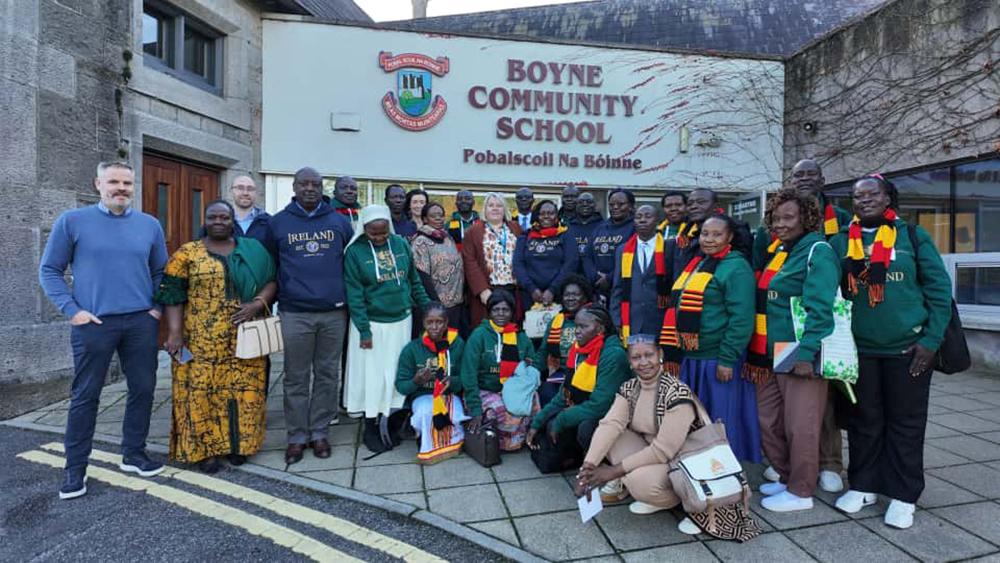Bunyangabu teacher’s lessons from Ireland
The Irish education system emphasises inclusive education. Every child, regardless of ability or background, has a right to quality education. Ireland has special needs assistants, well–trained teachers, and resources to support learners with disabilities or learning challenges.
Kajumba Margeret, Class teacher Adolf Primary School.
________________ Teachers Making A Difference delegation pose for a photo during their visit to Ireland.
OPINION
By Kajumba Margret
Last month, I was one of the 18 teachers who flew to Ireland for a continuous professional development programme under the New Vision’s Teachers Making a Difference initiative. The tour was fulfilling because I picked up many lessons that can improve our quality of teaching and learning.
The most intriguing lesson to me was how the Irish education system encourages values development. Right from the lower level, the learners are taught moral values and community responsibility alongside academics and life skills. Schools in Ireland nurture discipline, empathy, and civic responsibility – traits that help build a just and peaceful society. If Ugandan schools integrated values intentionally, it would help address social problems like indiscipline and moral decay among the youth.
Teachers Making a difference pose for a photo with staff of Boyne Community School after their visit.
Another admirable aspect of the Irish system is the integration of technology in education. The use of digital tools like interactive whiteboards, tablets, and online resources makes learning engaging and encourages responsible use of technology at early stages of life. Uganda can start making deliberate steps to equip schools, especially those in rural areas, with ICT tools. After all, Rome was not built in a day. By adopting Ireland’s digital learning practices, Ugandan schools can better prepare learners for the global job market, where technology plays a central role.
Thirdly, the Irish education system takes the learner–centred approach a notch higher right from the lower levels. The system is designed around the needs, abilities, and interests of the child. Teachers only act as facilitators. Their work is to guide learners to discover knowledge through exploration, discussion, and creativity. For example, Irish classrooms encourage critical thinking, teamwork, and problem–solving rather than rote memorisation. While Uganda has started implementing curriculum reforms, our education system is still tailored towards passing examinations, often neglecting the holistic development of the learner.
And last but not least, the Irish education system emphasises inclusive education. Every child, regardless of ability or background, has a right to quality education. Ireland has special needs assistants, well–trained teachers, and resources to support learners with disabilities or learning challenges. This inclusivity ensures that no child is left behind. In Uganda, while some efforts have been made to include children with special needs, many rural schools still lack the necessary facilities and trained staff. Ugandans can learn from Ireland’s model by promoting inclusiveness through teacher training and resource provision.
Furthermore, the Irish system promotes strong teacher development and welfare. Teachers in Ireland receive continuous professional training and respect from society. This motivates them to perform their duties with dedication. In Uganda, teachers have limited training opportunities. Improving teacher professional growth, as done in Ireland, would significantly improve the quality of education in Ugandan schools.
Education is the backbone of any nation’s development. Let’s treasure it by focusing on the holistic development of the learner, inclusivity, modern teaching methods, teacher empowerment, and moral education. Like in Ireland, let us create classrooms where every child feels valued, supported, and inspired to reach their full potential.
The writer is a teacher at St. Adolf Primary School in Bunyangabu district